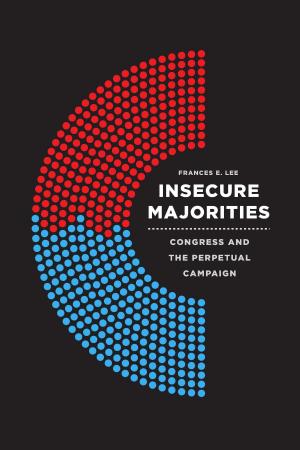How the States Shaped the Nation
American Electoral Institutions and Voter Turnout, 1920-2000
Nonfiction, Social & Cultural Studies, Political Science, Government, Local Government, Elections| Author: | Melanie Jean Springer | ISBN: | 9780226114354 |
| Publisher: | University of Chicago Press | Publication: | April 11, 2014 |
| Imprint: | University of Chicago Press | Language: | English |
| Author: | Melanie Jean Springer |
| ISBN: | 9780226114354 |
| Publisher: | University of Chicago Press |
| Publication: | April 11, 2014 |
| Imprint: | University of Chicago Press |
| Language: | English |
The United States routinely has one of the lowest voter turnout rates of any developed democracy in the world. That rate is also among the most internally diverse, since the federal structure allows state-level variations in voting institutions that have had—and continue to have—sizable local effects. But are expansive institutional efforts like mail-in registration, longer poll hours, and “no-excuse” absentee voting uniformly effective in improving voter turnout across states?
With How the States Shaped the Nation, Melanie Jean Springer places contemporary reforms in historical context and systematically explores how state electoral institutions have been instrumental in shaping voting behavior throughout the twentieth century. Although reformers often assume that more convenient voting procedures will produce equivalent effects wherever they are implemented, Springer reveals that this is not the case. In fact, convenience-voting methods have had almost no effect in the southern states where turnout rates are lowest. In contrast, the adverse effects associated with restrictive institutions like poll taxes and literacy tests have been persistent and dramatic. Ultimately, Springer argues, no single institutional fix will uniformly resolve problems of low or unequal participation. If we want to reliably increase national voter turnout rates, we must explore how states’ voting histories differ and better understand the role of political and geographical context in shaping institutional effects.
The United States routinely has one of the lowest voter turnout rates of any developed democracy in the world. That rate is also among the most internally diverse, since the federal structure allows state-level variations in voting institutions that have had—and continue to have—sizable local effects. But are expansive institutional efforts like mail-in registration, longer poll hours, and “no-excuse” absentee voting uniformly effective in improving voter turnout across states?
With How the States Shaped the Nation, Melanie Jean Springer places contemporary reforms in historical context and systematically explores how state electoral institutions have been instrumental in shaping voting behavior throughout the twentieth century. Although reformers often assume that more convenient voting procedures will produce equivalent effects wherever they are implemented, Springer reveals that this is not the case. In fact, convenience-voting methods have had almost no effect in the southern states where turnout rates are lowest. In contrast, the adverse effects associated with restrictive institutions like poll taxes and literacy tests have been persistent and dramatic. Ultimately, Springer argues, no single institutional fix will uniformly resolve problems of low or unequal participation. If we want to reliably increase national voter turnout rates, we must explore how states’ voting histories differ and better understand the role of political and geographical context in shaping institutional effects.















